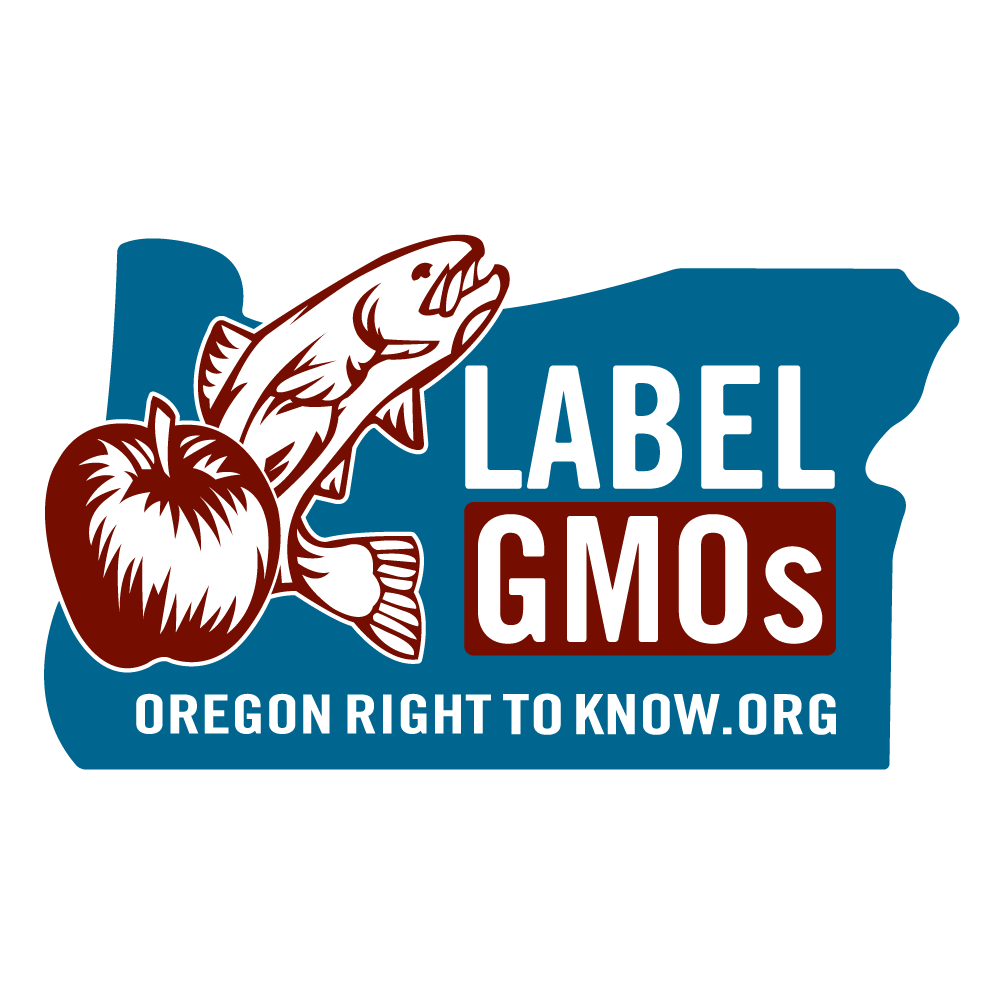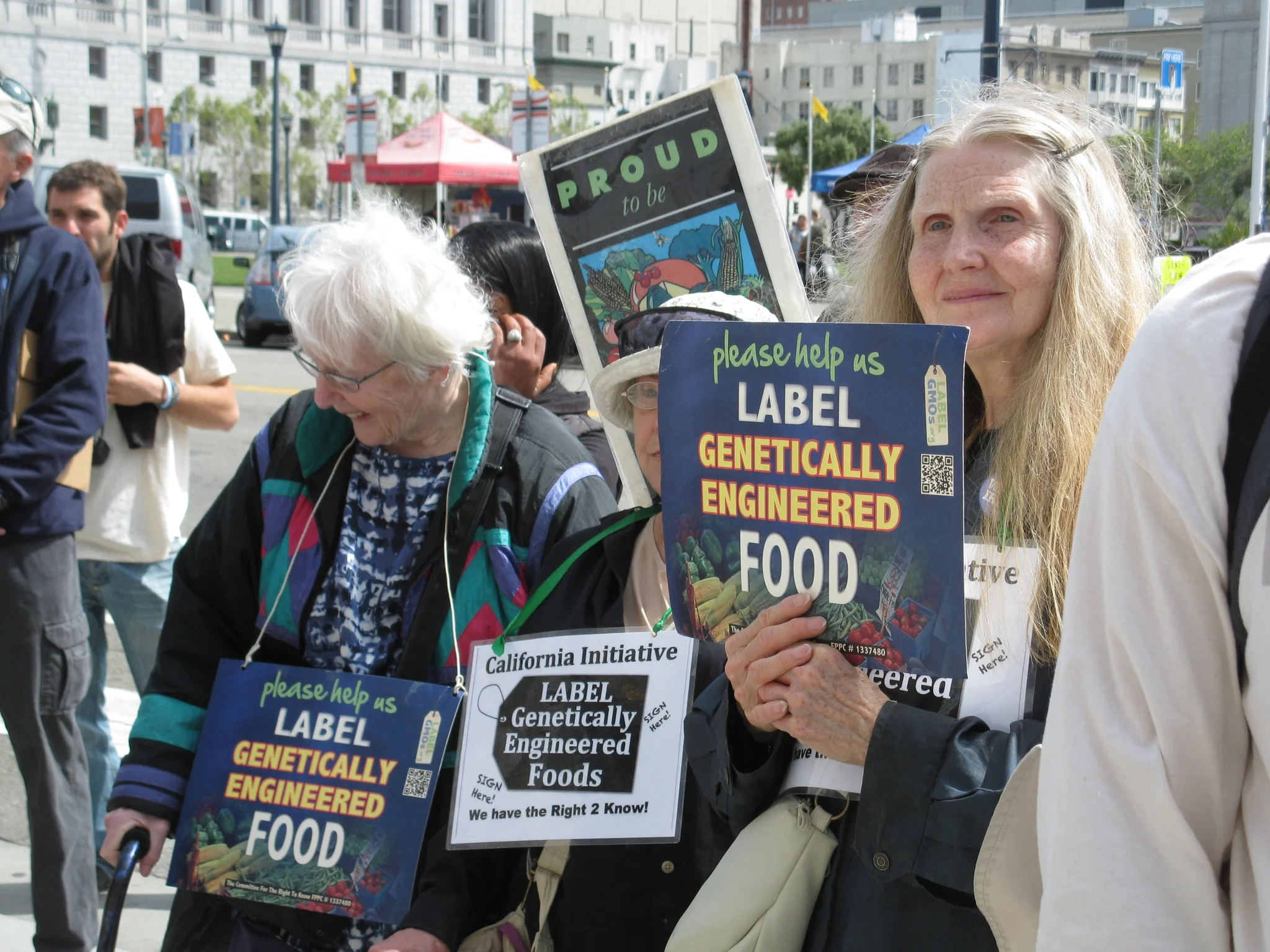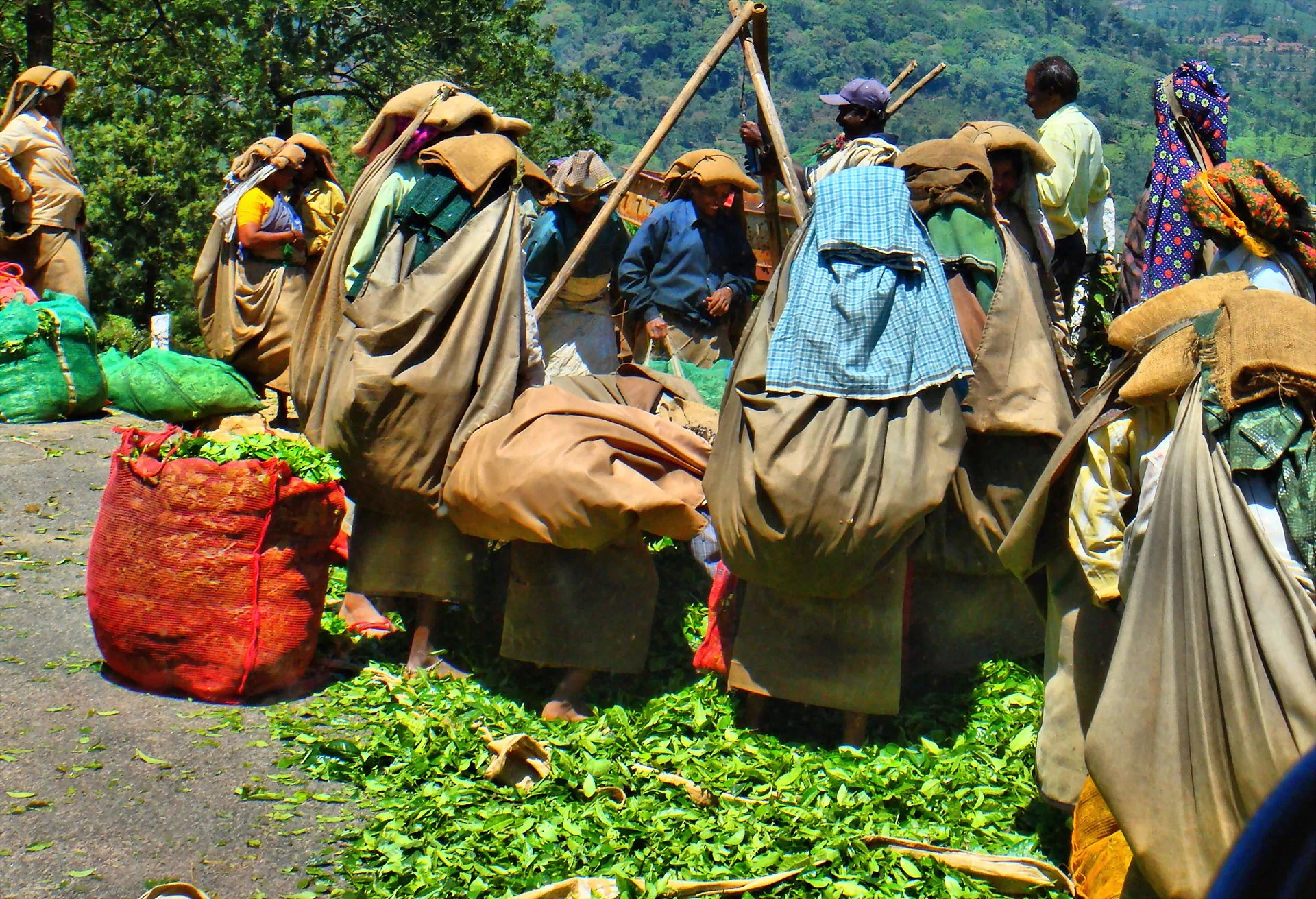Lawsuits Seeking to Overturn GMO Laws in Hawaii and Vermont
In a 5 to 4 decision, Hawaii County Council voted on December 17 to appeal a decision by a U.S. Magistrate Judge.
Source: Wikimedia Commons
In a 5 to 4 decision, Hawaii County Council voted on December 17 to appeal a decision by a U.S. Magistrate Judge who had ruled to protect Monsanto and GMO testing and production on the Big Island of Hawaii, reported the Hawaii Tribune Herald. Hawaii County voters in 2014 elected to ban the cultivation of GMOs on the island. The new ordinance prohibits growing GMO crops in open-air conditions, with some exceptions including GMO papaya.
Monsanto swiftly sued Hawaii County over the new law, and on November 27, U.S. Magistrate Judge Barry Kurren moved to invalidate the GMO ban, saying that state law pre-empts county law on agricultural issues. Paul Achitoff, attorney for Earthjustice, disagreed, saying, “The Legislature never intended the existing state laws we have in Hawaii to govern genetically engineered crops.” Judge Kurran has a long history of ruling in favor of Monsanto and agribusiness, claims journalist Christina Sarich in a report in the Natural Society.
Based on the Hawaii Council’s vote, the issue will now be taken up by a higher court. “This is an important decision with far-reaching impact on home rule,” said Councilwoman Margaret Wille, author of the original bill limiting GMOs in Hawaii.
Meanwhile, in Maui County, proponents behind the passage on November 4 of a referendum placing a moratorium on GMO cultivation and experimentation on the islands of Maui, Molokai and Lanai have been given the “green light” to intervene in a federal lawsuit filed by Monsanto challenging the measure, reported Maui Now on December 16. Honolulu attorney Michael Carroll, representing the authors of the Maui GMO initiative, said the group won standing on Monday to intervene in a lawsuit filed by Monsanto, which seeks to delay enforcement of the measure and ultimately to have it declared unenforceable. Carroll is representing the SHAKA Movement and others who led the effort to suspend the cultivation and testing of GMO crops in Maui County until an environmental and public health study can show that they are safe.
“We look forward to advancing our position with the Federal Court in order to validate the ordinance that the majority of Maui voters passed into law in November,” Carroll told Maui Now. A federal judge will consider arguments on March 10, 2015, regarding whether to throw out Monsanto’s lawsuit challenging Maui County’s newly approved moratorium on cultivating genetically engineered crops, reported the Honolulu Civil Beat.
In related news, in Vermont, oral arguments are tentatively set to begin in January 2015 regarding a lawsuit filed by the Grocery Manufacturers Association to overturn Vermont’s mandatory GMO labeling law, passed by the state Legislature in May. Vermont's law doesn't go into effect until July 1, 2016, however, the GMA is asking the U.S. District Court in Vermont to grant a temporary injunction to prevent the state from moving forward with implementation of the law. Vermont Attorney General William Sorrell's team, which includes high-powered Washington, D.C., law firm Robbins, Russell, will argue to dismiss the lawsuit.
MetaBrand Granted NBJ Investment in the Future Award
For Immediate Release:
Contact:
Eric Schnell, MetaBrand, info@metabrandcorp.com, tel 888.611.5573
Steven Hoffman, Compass Natural, steve@compassnatural.com, tel 303.807.1042
MetaBrand Capital Recognized for Its Investment Efforts in Advancing Mission-based, Natural and Organic Brands
MetaBrand Capital, a “conscious capital” fund established in 2014 as the investment pillar of MetaBrand, is granted Nutrition Business Journal’s 2014 “Investment in the Future” award.
Edison, New Jersey (January 20, 2015) – It’s certainly an honor to be recognized by the natural, organic and nutritional products industry’s leading business magazine, and even more so when the acknowledgment is for an initiative that’s just entering its second year.
MetaBrand Capital, a “conscious capital” private equity fund launched in 2014 and the investment pillar of MetaBrand - a full service firm providing product formulation, outsourced operations, and sales and marketing services to natural, organic and nutritional food and beverage brands – has been honorably recognized for its outstanding efforts in advancing and supporting organic, natural products brands and entrepreneurs with the 2014 Nutrition Business Journal’s (NBJ) “Investment in the Future” Award.
The most successful business leaders in the nutrition industry for 2014 have been announced in NBJ’s annual Business Achievement Awards issue, published in January 2015. Recipients of the NBJ Business Achievement Awards will be honored during the 18th annual NBJ Summit, a leading executive-level business conference held July 20-23 at the St. Regis Hotel Monarch Beach Resort in Dana Point, CA.
NBJ is the premier publication for the nutrition, natural, organic, dietary supplement and integrative medicine industries. Each year, the publication recognizes the industry's most notable business leaders in its annual Business Achievement Awards issue.
“We are honored to receive the esteemed recognition from NBJ,” said MetaBrand founder and longtime natural products entrepreneur Eric Schnell. “MetaBrand and MetaBrand Capital are dedicated to supporting and serving the growing demand for health and wellness solutions. We fundamentally – and sincerely – believe in paving the way and co-creating a better future for the next generation of natural and organic product entrepreneurs. The “Investment in the Future” recognition is truly at the heart of our business.”
MetaBrand Capital’s investment funds offer financing opportunities to mission-based, natural products brands and entrepreneurs. Securing funding is often the most complex challenge facing natural products entrepreneurs, particularly the smaller brands that independent natural retailers rely on for product differentiation. MetaBrand Capital aims to make accessing money easier and more viable for emerging natural and organic brands.
Taking the triple-bottom line approach to corporate responsibility one step further, MetaBrand and MetaBrand Capital embrace the “Quadruple Bottom-Line,” a socially and environmentally aware business philosophy dedicated to People, Planet, Profit – and Purpose. Through the MetaBrand Capital funds, the company focuses on growth capital investments in the food, beverage, nutrition and natural and organic product sectors with strategic partners that embody a similar socially conscious business approach.
About MetaBrand and MetaBrand Capital
Created by natural products industry veteran and Steaz Teas Co-founder Eric Schnell, MetaBrand, a “Quadruple Bottom-Line,” Certified B Corporation based in Edison, NJ, offers turnkey “R&D to retail” services to start-up and early-stage natural and organic beverage and supplement brands, including product formulation and development, manufacturing, distribution, and sales, marketing and promotional strategies. With a team of 35 advisers and long-standing industry relationships, MetaBrand helps companies quickly and efficiently develop winning formulations for natural product concepts that are on-trend and efficacious, regulation compliant, and scalable.
For more information on MetaBrand and the Quadruple Bottom-Line: People, Planet, Profit and Purpose, visit www.metabrandcorp.com,info@metabrandcorp.com, tel 888.611.5573.
For information on MetaBrand Capital, visitwww.metabrandcorp.com/pillar/capital/.
Visit the MetaBrand News Room, like us on Facebook, follow us on YouTubeand Twitter.
About Nutrition Business Journal
Through a portfolio of media products, including a monthly executive journal and in-depth research reports, Nutrition Business Journal, produced by New Hope Natural Media (a division of Penton Media), supplies authoritative data, news and analysis to leaders and decision makers in the natural, organic and nutritional products business. Visit www.newhope360.com/nbj.
MetaBrand - Tel: 888-611-5573 - www.metabrandcorp.com
Communications by: Compass Natural LLC
www.compassnaturalmarketing.com
Oregon GMO Labeling Bill Defeated by 837 Votes in Election Recount
After an official recount, Oregon’s Secretary of State announced on December 16 that Measure 92 to require mandatory labeling of GMO foods in the state was defeated.
After an official recount, Oregon’s Secretary of State announced on December 16 that Measure 92 to require mandatory labeling of GMO foods in the state was defeated by a razor-thin margin of 837 votes out of a total 1.5 million votes cast. The Yes campaign’s last-ditch legal challenge to approve 4,600 invalidated ballots due to signature discrepancies was rejected on December 9 by a Multnomah County Judge, sealing the defeat of the measure. The narrow defeat came as anti-labeling interests, including Monsanto, DuPont, Conagra and others, outspent the pro-labeling side by more than two to one, pumping nearly $21 million into the state to defeat the bill, while the pro-GMO labeling campaign raised more than $9 million.
Additionally, while they were pouring millions into the No on 92 campaign, out of state agribusiness companies and trade groups including Monsanto, Dupont, Coca-Cola, the Grocery Manufacturers Association and others contributed $80,000 to Oregon legislators’ campaigns and to Oregon political action committees, reported the Statesman Journal.
Out of the No campaign’s total contributions, over 99.99% came from out-of-state corporations, led by Monsanto’s $5,958,750 and DuPont’s $4,518,150, noted Rick North of Blue Oregon.
“The initiative was about a lot of things – consumers’ right to know what’s in their food, voter turnout, the recount, mismatched signatures, and the continuing controversy over the safety of genetically engineered food. But more than anything else, Measure 92 was about money,” he said. “Only one actual human being donated more than $100 to the No campaign. In contrast, over 17,900 individuals contributed to the Yes campaign.”
The Oregon GMO labeling bill would have required labels on product packaging, bins and shipping containers of genetically modified foods and foods made with genetically modified ingredients. Measure 92’s failure follows voter rejections, also by narrow margins, in California in 2012 and Washington in 2013, and by a wider margin in Colorado in 2014, after being vastly outspent by the anti-labeling side in each of these campaigns.
Supporters of the Oregon measure conceded defeat on December 11, but pledged to keep fighting for GMO labeling. "We draw strength from the fact that we came so achingly close to winning this vote," the Yes on 92 Campaign said. "We will continue working until Oregonians and all Americans – like the residents of 64 other countries around the globe – have the information they need to make informed choices about the food that they feed their families."
Sales of Non-GMO Products Top $8.5 Billion, Post 20% Growth
Sales of products carrying the Non-GMO Project Verified seal now total more than growing at more than 20% annually, reported the Non-GMO Project.
Photo: Compass Natural
Sales of products carrying the Non-GMO Project Verified seal now total more than $8.5 billion, growing at more than 20% annually, reported Megan Westgate, Executive Director of the Non-GMO Project, a non-profit organization based in Bellingham, Washington. More than 22,000 products now carry the Non-GMO Project Verified seal, representing more than 2,100 brands, she said.
To qualify for the seal, a product has to be certified as containing ingredients with less than 1% genetic modification. Westgate said that’s a realistic standard, while totally GMO-free is not, particularly in an environment where more than 90% of conventional crops including corn, soy, canola, alfalfa, sugar beets and cotton are genetically engineered. “Interestingly, with all of this traction in the natural sector, we’re seeing more conventional companies coming on board and having their products verified,” Westgate told Iowa Public Radio in a December 17 interview.
To date, FoodChain ID, a third-party auditor that certifies products for the Non-GMO Project, has verified 17,000 ingredients from 10,000 suppliers in 96 countries. David Carter, General Manager of FoodChain ID, said he could barely keep up with the number of inquiries coming from companies that want Non-GMO Project certification. “The demand is now very, very high and it has been for probably over a year,” Carter said. Visit www.nongmoproject.org.
Cold Soup is the Hottest Product Trend at BevNET Live Winter 2014 Conference
For Immediate Release:
Contact:
Eric Schnell, MetaBrand, info@metabrandcorp.com, tel 888.611.5573
Steven Hoffman, Compass Natural, steve@compassnatural.com, tel 303.807.1042
Cold Soup is the Hottest Product Trend at BevNET Live Winter 2014 Conference
TÍo Gazpacho wins New Beverage Showdown, also voted as Audience Favorite and Best Smoothie/Meal Replacement beverage in Santa Monica, Calif.
Santa Monica, CA (December 15, 2014) –MetaBrand, a leading Quadruple Bottom Line, full service firm providing product formulation, outsourced operations, and sales and marketing services to natural and organic food and beverage entrepreneurs, proudly announces its client partner, Miami-based Tío Gazpacho – a fresh, chilled, ready-to-drink high-pressure processed (HPP) version of the traditional Spanish Soup – won three prestigious titles atBevNET Live Winter 2014, December 8-9, in Santa Monica, CA.
After two days of inspirational presentations, judges and audience members voted to grant Tío Gazpacho Audience Favorite and overall Winner of New Beverage Showdown 8 (8th edition), BevNET’s signature beverage brand competition – and Best Smoothie/Meal Replacement beverage of 2014.
Sponsored by Venturing & Emerging Brands, an operating unit of Coca-Cola North America, BevNET's New Beverage Showdown is designed to identify the most innovative and scalable new beverage brand from a slate of beverage entrepreneurs. Austin Allan, founder of Tío Gazpacho, was awarded $10,000 in cash and prizes for winning the Showdown.
“Congratulations to Austin Allan and the entire Tío Gazpacho team for winning the hearts and taste buds of over 500 food and drink beverage professionals. That is no small feat and indicates that Tío is poised to be the next big trend to watch in the fresh, bottled, HPP beverage category,” said Eric Schnell, MetaBrand Founder and longtime natural and organic products entrepreneur.
“We are thrilled and deeply honored that our vision truly resonated with our peers at BevNET,” said Allan. “We have the support of amazing partners and vendors, including MetaBrand, in particular, for some remarkable visual design work, which helped to bring the Tío concept to life in a smart, meaningful and relevant way. While we’re currently retailed only in the Florida market, we have been diligently working to expand in the Northeast, and our BevNET successes will be an incredible asset as we launch in the NYC metro market next month.”
About Tío Gazpacho: Unapologetically cold. Deliciously bold.
The original savory gazpacho soup, blended with fresh, nutritious ingredients, boasts an exotic history with influences from Greece, Italy and Africa, and finally perfected in Spain. Tío Gazpacho takes this classic chilled mash-up and turns it on its head, with three bold, delicious variations - all organic and alive with flavor. Perfect for a healthy snack or lunch on the go. Ready to drink straight from the bottle. No bowl required™.
Tío is a new concept in refreshment and nutrition; it brings all the flavors and health benefits of Mediterranean eating to American consumers with a line of drinkable gazpachos. All crafted recipes are Certified USDA Organic, vegetarian and vegan, gluten-free, dairy-free, soy-free, and rich in vitamins, minerals and antioxidants - and they are free of preservatives, colors, artificial flavors and additives of any kind, and are never heat pasteurized.
The three fresh flavors include:
gazpacho clásico: Creamy and complex, with bright flavors from naturally-ripened tomatoes, cucumber, green pepper and olive oil.
gazpacho verde: A rich blend of kale, spinach and avocado with freshly picked mint, cucumber, jalapeno, cumin and black pepper.
gazpacho del sol: A sweet summer variety that owes its distinctive color to yellow tomatoes, fresh carrot juice and yellow bell peppers.
For more information visit, TioGazpacho.com and on Facebook.
About MetaBrand
Created by natural products industry veteran and Steaz Teas Co-founder Eric Schnell, MetaBrand, is a leading Quadruple Bottom Line, full service firm providing product formulation, outsourced operations, and sales and marketing services to natural, organic and nutritional food and beverage entrepreneurs. With a team of 35 advisers and long-standing industry relationships, MetaBrand, a Certified B Corp., helps companies quickly and efficiently develop winning formulations for natural and organic product concepts that are on-trend and efficacious, regulation compliant, and scalable. For more information, visitMetaBrandCorp.com, info@metabrandcorp.com, tel 888.611.5573.
MetaBrand - Tel: 888-611-5573
Also, visit the MetaBrand News Room, and on Facebook, LinkedIn, YouTube and Twitter.
Communications by: Compass Natural LLC
www.compassnaturalmarketing.com
Why Is Today’s Food Making Us Sick, and What Can We Do About It?
For Immediate Release:
Contact:
Colleen Patrice, Lighten Your Toxic Load, colleenpatrice@gmail.com
Steven Hoffman, Compass Natural, steve@compassnatural.com, tel 303.807.1042
“Knowledge is power,” says author Colleen Patrice in Book One of her new book series, Lighten Your Toxic Load, "and our power to make healthy choices is being stolen from us by corporate greed and a broken government." In a revealing exposé written in a friendly, easy-to-understand style, Patrice reveals how you can take back the power to control your food and your family’s health.
Boulder, CO (December 8, 2014) – The father of modern medicine, Hippocrates, said, “Let food be thy medicine.”
But what happens when the processed foods we eat today make us sick? Are the toxic pesticides used in food production, along with potentially harmful artificial ingredients, including artificial sweeteners, synthetic flavors, colors, and preservatives, poisoning us and leading to increased rates of cancer, obesity, diabetes, autism, food allergies, and other diseases in our children and families?
The truth, says author Colleen Patrice in her new book, Lighten Your Toxic Load, is that many foods have, indeed, been shown to increase the risk of cancer and other illnesses – and some of them substantially. But, she says, there is something each and every one of us can do about it to minimize or avoid exposure to dangerous chemicals and toxins in our food.
In this meticulously researched, yet easy-to-read, friendly and informative guide, Patrice exposes the links between today’s processed foods and disease, and empowers you with the knowledge you need to cut through the confusion and take back your health. Providing simple suggestions and a multitude of trusted resources, Lighten Your Toxic Load explains how you can learn which foods to avoid and which are the most healthful – while shedding light on how our food is being compromised by a handful of multinational corporations, including biotech and junk food companies, who value profit over the welfare of people.
“My goal in writing this book is to empower people with information that restores their freedom to make healthy choices. And I believe that with a little bit of education and awareness, we can help create a better world… one bite at a time,” says Patrice.
Dr. Scott Vander Wall, a noted Denver healthcare practitioner, said, “This book will reveal why there are so many conflicting opinions out there. There are so many sources of false information funded by corporate shadows that we are split on all issues. It is time to take the knowledge and power back.”
Lighten Your Toxic Load, published in August 2014, is available onAmazon.com. Learn more at LightenYourToxicLoad.com. Follow us onFacebook.
About the Author
Colleen Patrice’s life and career have revolved around food, nutrition and the healing arts, and she has always had a knack for inspiring people to make lasting lifestyle changes. After a family member was diagnosed with breast cancer, Colleen felt compelled to share her knowledge with a much larger audience. Now a full-time author, her days are dedicated to research and writing about how (and why) people can choose to opt out of our highly dysfunctional food system, and opt in to healthy foods that sustain the planet and promote optimal health. Visit LightenYourToxicLoad.com and Colleen’s personal blog at ColleenPatrice.com.
Nutraceutical Company Zappy Inc. to Acquire Browns Botanicals
For Immediate Release:
Contact:
Mike "Zappy" Zapolin, Zappy Inc., mikezappy@aol.com, tel 617.447.9012
Steven Hoffman, Compass Natural, steve@compassnatural.com, tel 303.807.1042
Nutraceutical Company Zappy Inc. to Acquire Browns Botanicals, Winner of the 2014 Cannabis Cup for "Best Non-Edible Medically Infused Product"
Plans for expansion of line of Hemp CBD Oils to compete with leading pharmaceutical products.
Boca Raton, Florida (November 13, 2014) – Zappy, Inc. has agreed to acquire Browns Botanicals and plans to release proprietary Hemp CBD formulations for potential aid in various ailments including Anxiety, Insomnia, Fatigue, Nausea, Pain and other ailments.
The formulations were developed using Hemp CBD Oil derived from industrial hemp, which is legal in all 50 States and 40 Countries. Browns Botanicals is a nutraceutical leader specializing in the highest purity legal Hemp CBD-rich botanical products.
“We are honored to have Browns Botanicals as the backbone of the Hemp-derived Cannabinoids and Terpenes science that we are bringing to customers. Browns is well known in the industry for having the very best CBD products, and testimonials from customers with various illnesses, including epilepsy and several different auto-immune issues, are incredible,” said Mike “Zappy” Zapolin, CEO of Zappy Inc.
Browns Botanicals recently won the first ever “Best Non-Edible Medically Infused Product” at the 2014 Cannabis Cup with an Industrial Hemp-derived CBD Oil product, beating out the competition with their CBDemu, which is being used by Olympic athletes and sports teams.
Browns Co-founder Teddy Brown said, “I began researching and experimenting with CBD, Terpenes, and various Cannabinoids as therapy over 10 years ago when I had a complicated head surgery. The results I’ve experienced have been nothing short of miraculous, and we love hearing similar stories from our members and customers, many of whom are battling significant illnesses.”
Recently, Zappy CEO Mike Zapolin moderated a panel about Cannabis at the prestigious Milken Global Conference. The panel focused on the opportunities presented by the Cannabis plant, which contains more than 70 different elements, each being studied for treatment of a wide range of illnesses. Nutraceuticals developed from these Hemp CBD Oils have the potential to replace many existing pharmaceutical products because they are natural and do not have the same harmful side effects.
“We’re excited to be a part of Zappy, Inc. This opportunity will allow us to rapidly expand the existing Browns Botanicals product line to help patients all over the world,” said Bryan Fixelle, Co-founder of Browns. “Our products are a perfect fit with Zappy’s mission of healing people with products that are good for them and good for the environment.”
Zappy has brought together a team of world class advisors and manufacturing partners to ensure that its products will continue to be of the highest quality and available in sufficient quantity for sale in leading retail stores nationwide. “The team we have assembled are of the highest consciousness and our collective goal is to bring about healing to millions of people worldwide.”
Zappy Inc. is based in Boca Raton, FL (www.Zappy.com). Brown’s Botanicals is based in Saddle Brook, NJ (www.Browns-Botanicals.com), toll free 1-844-CBD-OILS (844-223-6457).
About Zappy, Inc.
Zappy Inc. is a vertically integrated nutraceuticals company that focuses on medical and consumer applications of various botanical products, including Hemp-based CBD products. Zappy Inc. already owns key Intellectual Property in the category, its management team has significant experience creating strong operating businesses, and have a “rare” proven track record of dramatically increasing shareholder value for a publicly traded nutraceuticals company. The online and offline businesses being developed and acquired by Zappy are targeted at both the medical industry and consumers. Visit www.zappy.com.
About Browns Botanicals
Our goal is to illuminate and uplift society as a whole. We believe that CBD and other botanicals may provide some of the most necessary vitamins, minerals, enzymes, and phytonutrients, which we, as a society, are just beginning to study and understand. We are a rapidly growing worldwide nutraceutical company committed to producing the purest products with a constant effort to elevate body, mind and spirit in everything we do. We commit ourselves to supporting research for charitable foundations. Find out how your patronage benefits others, and learn more ways you can help by visiting our BB Cares page. Industrial hemp based products are legal and available to ship to all fifty states and over 40 countries. Visit www.Browns-Botanicals.com.
Communications by Compass Natural LLC
Health Conundrum: Pesticides in Tea
If tea is not organically grown, toxic synthetic pesticide residues can remain on conventionally grown tea leaves until the first time they touch water.
Source: Wikimedia Commons
When companies sell non-organic tea produced with pesticides, what are consumers really sipping?
Tea, an ancient plant first discovered in China, is today arguably the most popular beverage in the world. Millions of people from every corner of the world drink tea primarily for its many health benefits and soothing, energetic and/or medicinal qualities.
Yet, many consumers may not know that tea leaves are primarily dried and not washed after they are harvested. Why is that important? If the tea is not organically grown, toxic synthetic pesticide residues can – and sometimes do – remain on conventionally grown tea leaves until the first time they touch water – in your cup.
Residues Exceed Limits
Organizations including Greenpeace and CBC News conducted independent testing on tea leaves, and found that 59% of samples tested contained pesticide residues in excess of EU government limits. Testing also found that 67% of tea leaves sampled in India contained residues of the pesticide DDT, banned in India since 1989 and in the US since 1972. Some teas were found to contain more than one pesticide, and one tea product tested by CBC, the Canadian Broadcast Corporation, contained 22 different pesticides.
“Some of the pesticides found – including endosulfan and monocrotophos — are in the process of being banned from use in some countries because of dangers to the environment and to workers,” CBC said in an article on March 8, 2014. Endosulfan has been banned globally under the Stockholm Convention due to its particularly toxic properties.
Additionally, Greenpeace in 2013 randomly tested 18 tea products from China – the world’s largest tea producer and one of the world’s largest users of pesticides – and found that “a whopping 12 of the 18 samples tested contained at least one pesticide banned [in China] for use on tea.”
Even teas carrying “natural” claims may not be immune to pesticide residues if they have been conventionally grown using synthetic pesticides, reports Vani Hari, editor and publisher of Food Babe, a blog dedicated to promoting healthy lifestyles and investigating food companies and their products.
Don’t Panic – Drink Organic!
So what’s a tea lover who wants to avoid pesticide residues to do? Friends of the Earth suggests drinking tea that is organically produced without the use of toxic, synthetic insecticides, herbicides or fertilizers.
One tea maker, Belight Tea of Phoenix, AZ, offered this advice to tea drinkers on its blog:
“Generally speaking, white tea tends to have the least pesticide residues; black tea the most. That has to do with picking time: the longer the leaves are on the bush, the more they are exposed to, whether intentionally or inadvertently.”
Another organic tea company adds, “From the outset, we’ve been committed to 100% organic cultivation,” said Linda Appel Lipsius, Co-Founder and CEO of Denver-based Teatulia Organic Teas. Teatulia sources its teas from its own 3,000-acre, USDA Certified Organic and Rainforest Alliance Certified tea garden in Northern Bangladesh. “Transparency is key where possible,” she said. “Since we are the farmers, organic tea produced without the use of toxic, synthetic pesticides is something we have always been able to guarantee.“
Disappointed GMO Labeling Advocates in OR and CO
With more than $45 million poured in to defeat GMO labeling ballot initiatives in 2014, voters in Oregon and Colorado rejected ballot measures to label GMO foods.
Source: Wikimedia Commons
With more than $45 million poured in to defeat GMO labeling ballot initiatives in 2014, voters in Oregon and Colorado rejected ballot measures to label GMO foods. However, residents of Maui, HI, passed a ban on GMO agriculture by just over 1,000 votes.
GMO labeling advocates are rethinking national and state strategies after voters rejected ballot initiatives to label GMO foods in both Oregon and Colorado in statewide elections held on November 4.
In Colorado, the campaign to pass Proposition 105 to label GMO foods, which was hugely outspent by anti-labeling forces, suffered a significant defeat with 66% voting against, vs. 34% of voters in favor of labeling. Colorado residents were subjected to a withering barrage of television advertising in September and October by the No on 105 side, the supporters of which, including Monsanto, DuPont, Dow, Pepsi, Kraft and General Mills and others, pumped nearly $17 million into the state vs. just under $1 million raised by the pro-labeling, Yes on 105 campaign.
In Oregon, the outcome was much closer, where Measure 92 to label GMOs was narrowly defeated by a razor-thin margin of less than 1% of the vote, with less than 51% of Oregonians voting no. Spending on both sides of the GMO labeling measure broke all state records for ballot measures in Oregon, with the pro-labeling, Yes on 92 side raising $8.1 million, while the No side poured $20.5 million into the state to defeat the ballot measure.
Maui Wins Big; Monsanto Threatens Litigation
However, in a big win to reign in the rampant escalation of GMO agriculture and pesticide use in Hawaii, a ballot referendum in Maui County was passed by just over 1,000 votes to place a moratorium on the growing of genetically engineered or GMO crops on the islands of Maui, Molokai and Lanai until they are cleared by environmental and safety studies. These islands have been major experimental grounds for new, untested GMO crops and pesticides, and residents have grown increasingly concerned about pesticide pollution of rivers and oceans, and health risks to communities located near experimental plots.
True to form, Monsanto has already threatened litigation to overturn the moratorium. According to Hawaii News Now, on November 5, Monsanto issued the following statement in response to the Maui referendum:
“We believe this referendum is invalid and contrary to long established state and federal laws that support both the safety and lawful testing and planting of GMO plants. If effective, the referendum will have significant negative consequences for the local economy, Hawaii agriculture and our business on the island. We are committed to ongoing dialogue as we take steps to ask the court to declare that this initiative is legally flawed and cannot be enforced. Monsanto and other allied parties will be joining together in this effort."
In another small but meaningful 2014 election victory, the citizens of Humboldt County, CA, approved a measure to prohibit the propagation, cultivation, raising, or growing of genetically modified organisms in the county. Humboldt joins Mendocino, Trinity, Santa Cruz and Marin Counties, which previously passed moratoriums or bans on GMOs. Also, two counties in Oregon have banned GMOs, along with San Juan County in Washington State, and the state of Vermont, which is currently facing a lawsuit from anti-labeling opponents including the Grocery Manufacturers Association.
Who Is Funding the Anti-GMO Labeling Side?
Seeking to crush a groundswell movement in America to label genetically modified or GMO foods, a small group of multi-billion-dollar pesticide, biotech and “Big Food” companies poured more than $45 million into Colorado, Oregon and Hawaii in September and October to defeat the GMO labeling ballot initiatives.
Just two dozen corporations, including Monsanto, DuPont, PepsiCo, Coca-Cola, Kraft, Land O'Lakes, General Mills, Hershey, J.M. Smucker, Conagra, Dow Chemical Co., Kellogg, Smithfield Foods, and others, were responsible for more than $16 million of the $16.7 million total contributed to defeat the Colorado GMO labeling bill. Also of note among the donors seeking to defeat the Colorado GMO labeling bill were Abbot Nutrition and Mead Johnson, companies that make nutritional formulas for infants and the elderly – companies that do not want mandatory GMO labeling on their packaging.
Similarly, Monsanto, PepsiCo, Kraft, Coca-Cola, Land O'Lakes, General Mills, Hershey and other chemical and food multinationals topped the list of donors to the No on 92 campaign in Oregon. To see the list of donors to both the Yes and No sides in Oregon, visit http://gov.oregonlive.com/election/2014/finance/measure-92/.
In contrast, the underdog Right to Know Colorado campaign raised less than $1 million in cash and pledges, mostly through small business donations along with hundreds of $5, $10, and $25 contributions to the campaign from primarily Colorado citizens. Despite grassroots volunteer efforts, phone banks, door-to-door visits, social media, newspaper and digital advertising, plus major endorsements from leading Colorado media, Chipotle Mexican Grill, Whole Foods Market and more, the pro-GMO labeling campaign could not afford to counter any of the negative television advertising that blanketed the state from the No on 105 campaign.
“I can’t understand why these corporations would put $17 million into a Colorado campaign where the pro-labeling side raised less than $1 million,” said Larry Cooper, Co-chair of the Right to Know Colorado campaign. “What are they trying to hide?”
Presence Marketing a Major Contributor to Pro-Labeling Campaigns
Major contributors to Colorado's Yes on 105 and also the Oregon pro-labeling campaign included Presence Marketing/Dynamic Presence, Food Democracy Now, Organic Consumers Association, Annie's Inc., Dr. Bronner’s, Boulder Brands and others. For a complete list visit www.righttoknowcolorado.org/donors and www.oregonrighttoknow.org/endorsements.
Grassroots organizations endorsing the Right to Know Colorado ballot initiative included Moms Across America, Rocky Mountain Farmers Union, Colorado Moms for GMO Labeling, Conservation Colorado, Alliance for Sustainable Colorado, Hazon, and others.
Seeing the rising tide of consumer and citizen support for GMO labeling as a threat to profits, Monsanto, Dow, DuPont, Pepsi, Coke, Kraft, Grocery Manufacturers Association, and other pesticide, biotech and junk food companies have teamed up to spend nearly $150 million over the past three years to defeat GMO labeling ballot initiatives in California and Washington in 2012 and 2013, and in Oregon and Colorado this year.
More than 93% of Americans want GMO labeling, according to a 2013 New York Times survey. Yet, less than three dozen chemical, pesticide and junk food companies continue to fight history with a withering amount of cash, deceptive advertising, and threats of lawsuits to confuse voters and legislators about GMO labeling - and to buy our elections.
The Fight Will Continue in Washington D.C.
Scott Faber, executive director of the Just Label It campaign, said the recent election defeats in Oregon and Colorado "only strengthens our resolve to fight for consumers' right to know what's in their food. Now, the fight will shift to the nation's capital, where the same food companies who were fighting the right to know will be seeking to block state laws and make it harder for the FDA to craft a national mandatory disclosure system."
For information and to support GMO labeling, visit www.justlabelit.org, www.righttoknowcolorado.org and www.oregonrighttoknow.org.
Steven Hoffman is Managing Director of Compass Natural Marketing, providing marketing, PR, social media, and strategic business development services to natural, organic and sustainable products businesses. Contact steve@compassnatural.com, tel 303.807.1042.
Social Media: Amplify Your Brand with Hashtags
The hashtag is one of the new ways to communicate with your customers to establish brand loyalty.
Source: Pexels
Why are all the young folks using the pound sign?
First off, the kids are calling it a hashtag and not a pound sign. While pressing pound helps you get to the operator quickly when placing a phone call to a large corporation, the hashtag in social media is a word or phrase preceded by a hash or pound sign (#) that is used to identify messages on a specific topic.
Hashtags were made popular by Twitter in 2007, and have since been embraced by social networks including Instagram, Vine, Google +, Pinterest, Tumblr, and Facebook, according to top marketing firm Offerpop.
So, how does it work? When you click on a hashtag, you will be transported to a feed of all of the posts that are also using the hashtag, updated in real time. The World Cup just finished last month. If you saw #WorldCup2014 trending, you could click on that hashtag and see what people around the world were saying about the World Cup.
But, how is this information valuable to you as an emerging or established brand in the natural products industry? The hashtag is one of the new ways to communicate with your customers to establish brand loyalty. When you use social media tools and your customers use those tools as well, you increase your brand visibility to all of the people your customers interact with on social media. So, not only are you talking to your immediate customer, you’re also talking to the their Facebook friends, and their Twitter and Instagram followers.
There are different ways that you can use a hashtag. Do you want to introduce new or current customers to products? Consider providing a #coupon hashtag that gives information about a new promotion. Here’s some great advice from the folks at Offerpop:
“You should add a hashtag to all of your brand messages, whatever the medium: email, TV, paid search, print, even Jumbotrons. They encourage people to respond to your advertising. They help you spark conversations, get feedback, give answers and move consumers down the sales funnel. And their hashtagged posts appear in their friends’ feeds, helping you spread word of mouth.”
Search Engine Watch suggests using hashtags to drive engagement with your customers. "When compared to Tweets without a hashtag, tweets with hashtags showed 12 percent more engagement (RT, favorite or @ reply). Tweets that included a link and a hashtag, showed the highest engagement rate of any other type of tweet."
So, now you know what a hashtag is. The next step is creating the ideal tag that will get your customers engaged and talking about your product. That’s where Compass Natural can help. Our team of seasoned public relations executives and social media savvy team members will help you connect to your customers in this new language. Email, tweet or Facebook message us for a consultation to explore ways to develop loyalty among your consumers.















